Thinking
Feldenkrais
Knee Pain & the Feldenkrais Method

Chronic knee pain was one of the catalysts in the development of the Feldenkrais Method. Dr. Feldenkrais, a Physicist, Engineer, and Judo Master, had suffered a series of injuries that had resulted in a painful knee problem that threatened his ability to walk. Hoping to avoid surgery -which at that time was more invasive and less sophisticated than it is today- Dr. Feldenkrais began to study how posture and movement are organized in the brain. He found that it is possible for us to engage our own neuroplasticity to benefit our body and created a process of sensory-motor learning that allows for new neural connections and results in dramatically better musculoskeletal organization and efficiency. Thanks to his studies and discoveries, Dr. Feldenkrais was able to avoid surgery and walk for the rest of his life. Fortunately, he continued his explorations and developed an approach that enriches and helps us today.
In Intelligent Knees for Better Walking with Raz...
Juniper talks about Chronic Pain, the Feldenkrais Method, & more!
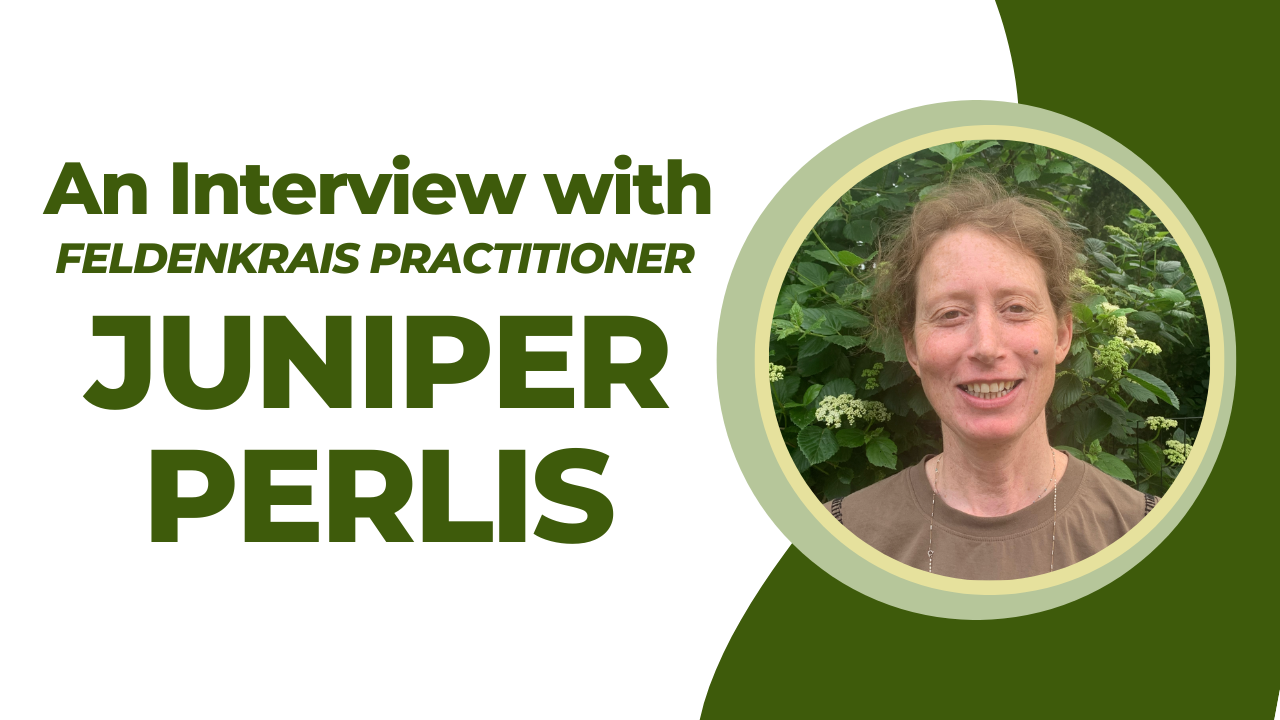
Ira Feinstein: Thanks for talking with me today, Juniper. I'm excited to learn more about your path to becoming a Feldenkrais Practitioner. How did you find out about the Feldenkrais Method?
Juniper Perlis: The first time I heard about the Feldenkrais Method, I was getting my master's in fine art, and a guest practitioner taught a class. I didn't enjoy it, and afterward, it left my mind. Fast-forward six years, and I was working as a nanny for two artists. One day, working in the studio, I spent hours peeling paint, when I got frustrated and moved in such a way that I dislocated a rib. I was instantly in excruciating pain. It changed the course of my life.
It didn't take long before the pain got worse. I had pain radiating into my hands, facial pain, and other weird symptoms that didn't seem related. I saw nerve doctors, physical therapists, chiropractors, acupuncturists, Reiki practitioners, pain management specialists, Alexander practitioners, everything under the sun. Nothing hel...
Maggy talks about 'The Secrets of Your Ring Muscle System'

Ira Feinstein: How did you find out about the Feldenkrais Method?
Maggy Burrowes: I was living in a small town on the south coast of the UK called Brighton. It's an adventurous, very forward-thinking little town. I'd been taking various classes at the natural health center for a long time when a Feldenkrais workshop was offered by Garet Newell, who had come to the UK with the intention of running a training and moved into the neighborhood. At the time, I'd never heard of Feldenkrais, but I thought, well, I'm just going to try it out.
I have hypermobility issues, and it is easy for me to injure myself when moving too enthusiastically. I'd been dealing with a long-running lower back issue that manifested mainly as intermittent sciatica. Whenever it came on, I would limp around for a week or so until it got better. As luck would have it, and I do think it was luck, I had an attack the night before the Feldenkrais workshop. So I limped in on that first day and walked out with the pai...
Uncaging Your Whole Self

Our chest developed to have a lot of flexibility. We have twelve pairs of ribs, so there are 24 places where our ribs articulate with our thoracic spine, allowing our chest to move dynamically and multidimensionally in all directions. For example, I can bend my chest to the left. I can bend my chest...
An Interview with David Zemach-Bersin
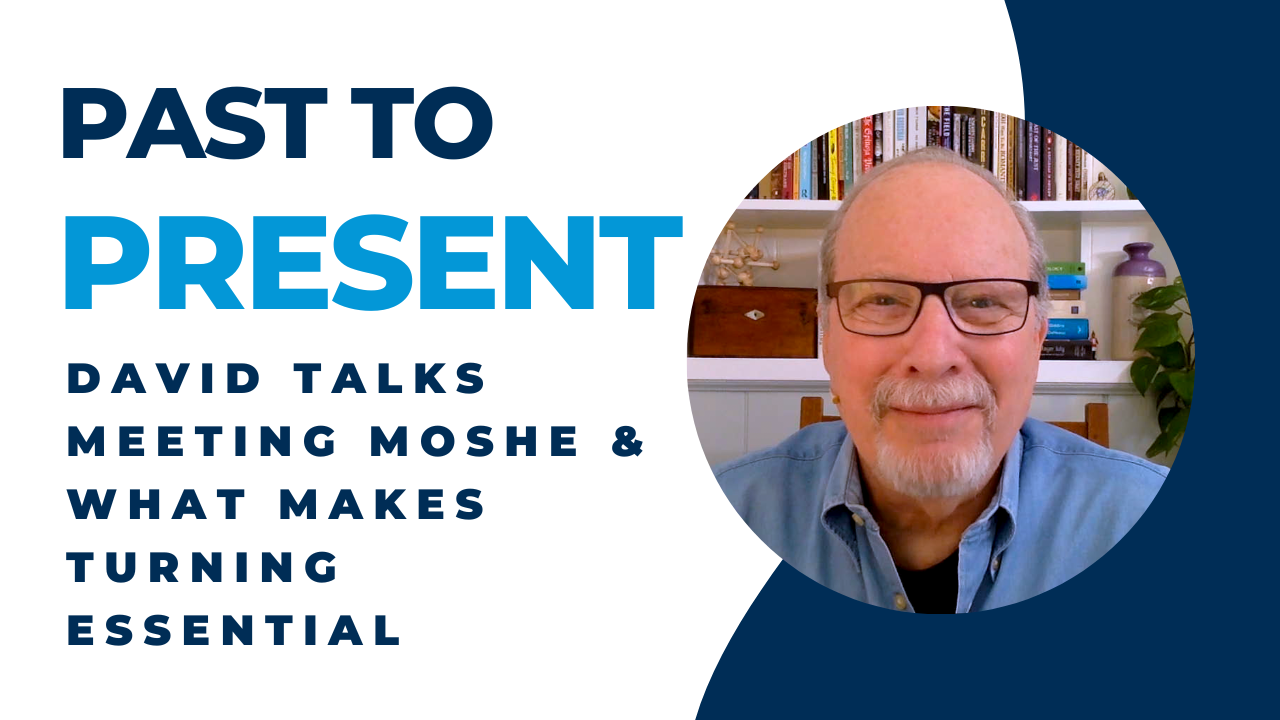
Ira Feinstein: How did you meet Dr. Moshe Feldenkrais?
David Zemach-Bersin: In April of 1973, I was a senior at the University of California Berkeley, and I saw a flier on a telephone pole saying Moshe Feldenkrais was coming to town. I'd already heard of him because my psychotherapist had seen him work on somebody, was impressed, and had told me about it. I decided to register for his Berkeley workshop.
Ira: How serendipitous! What was the workshop like?
David: It was extraordinary! There were two workshops; one during the day that met for five weeks, and an evening class twice a week, open to the public. I went to one of the evening classes, which was very crowded. Probably 150 people were there. I was immediately hooked and began sneaking into the daytime class, limited to only about 30 participants studying in depth with Dr. Feldenkrais. He was in Berkeley for five weeks, and I managed to study with him most days during those five weeks.
I was stunned by the positive changes...
Core & The Feldenkrais Method
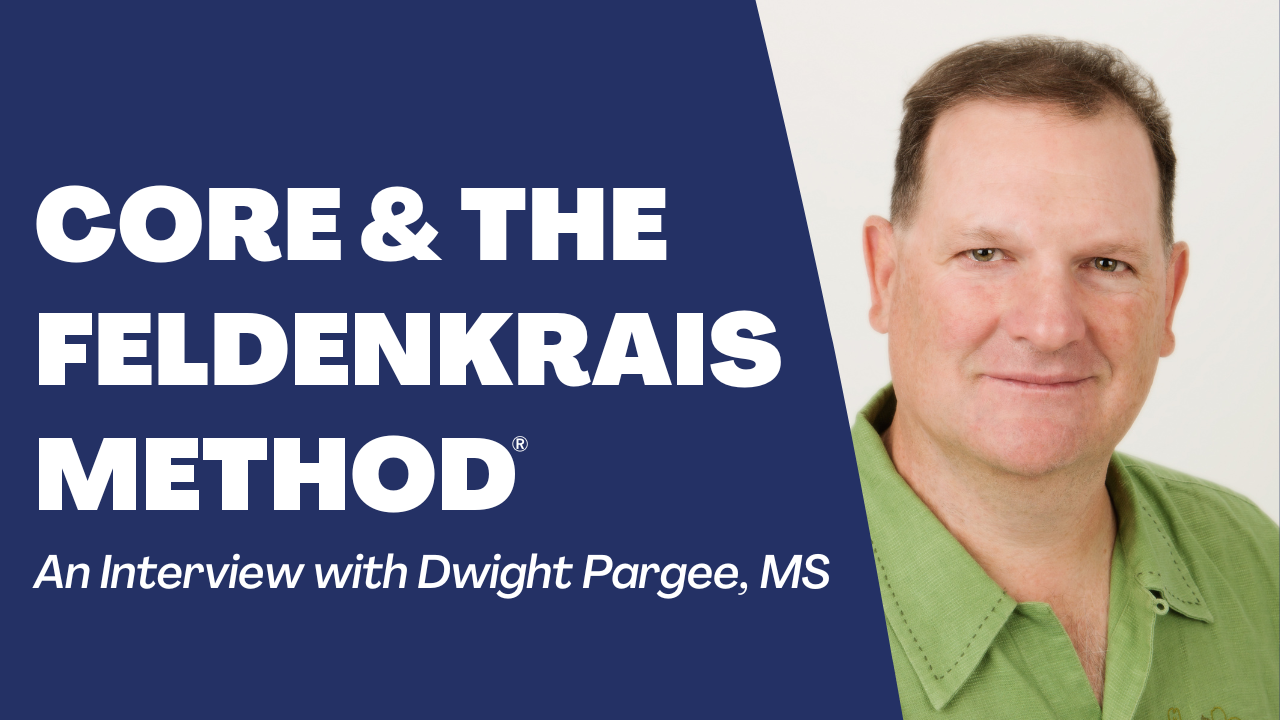
Ira Feinstein, MFA, recently spoke with Dwight Pargee, MS, about the Feldenkrais Method, Pilates, and the importance of core agility.
Ira: How did you find out about the Feldenkrais Method?
Dwight: In 1989, I returned to the United States after playing international rugby in Australia for a couple of seasons, during which I got five concussions. I had post-concussion syndrome, though there wasn't even a word for it back then. I was trying everything I could to put myself back together, Tai Chi, yoga, and reflexology because I was a little blurry. I was existing outside myself in a strange way; people who've had concussions know what I'm talking about.
My background is in sports physiology. At the time, I was working at a physical therapy clinic. One of my wise mentor PTs said, "You should check out Feldenkrais. It might help." So, I went to a weekend workshop and immediately benefited. I realized that it was what I was missing. I immersed myself in classes and individual lesso...
Walking Patterns & Your Knees
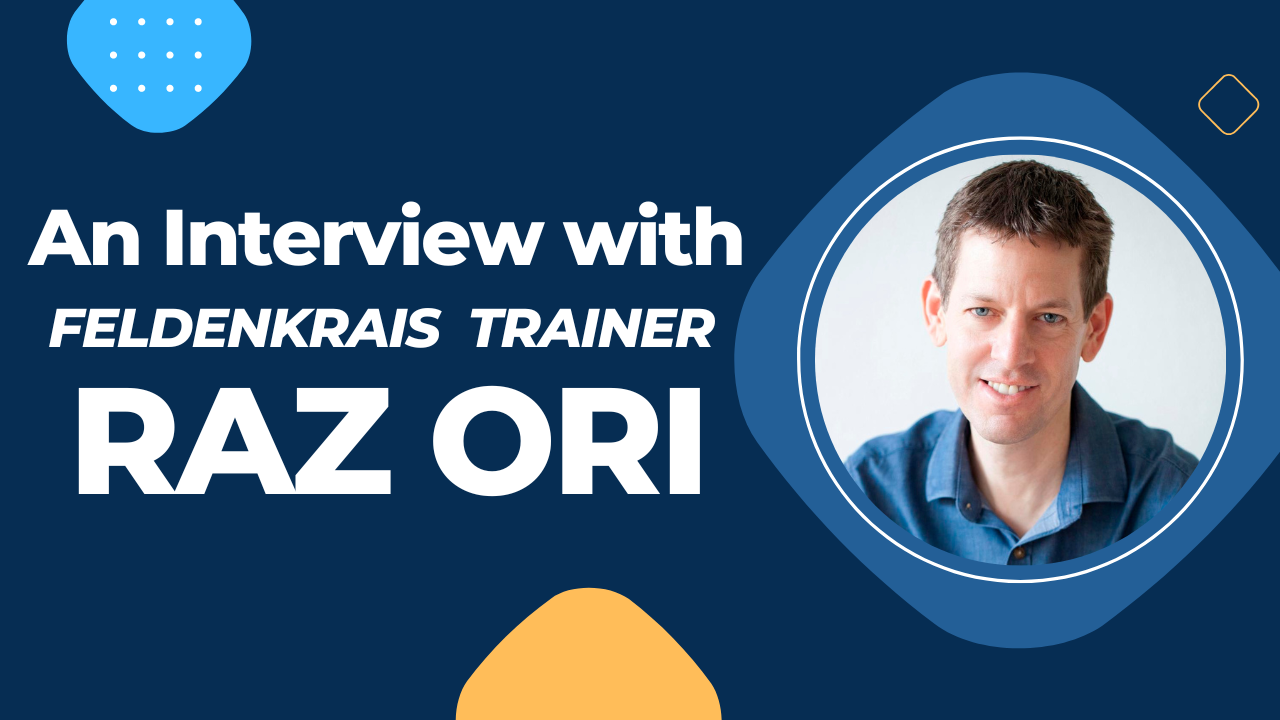
Ira Feinstein: How were you introduced to the Feldenkrais Method?
Raz Ori: I knew about the method from a very early age because my parents were ATM consumers. My most vivid memory of the Feldenkrais Method is from age twelve. I had back pain from a long car drive, and my mom told me, ""Okay, lie on your back."" She gave me one movement, and I can still recall the kinesthetic experience of feeling the relationships she was pointing me towards. It was mind-blowing in its simplicity.
Ira: How did you progress from that initial experience to becoming a practitioner?
Raz: When I was nineteen, I started seeing a Feldenkrais practitioner regularly to alleviate pain. After a few sessions, I realized I wanted to study the Feldenkrais Method in-depth. I began doing Awareness Through Movement lessons at home and read Dr. Feldenkrais' books. After a year of self-study, I joined a professional training at the age of twenty.
Ira: A bit of embarrassing self-disclosure here. I read all of Mo...
An Interview with Feldenkrais Trainer Paris Kern
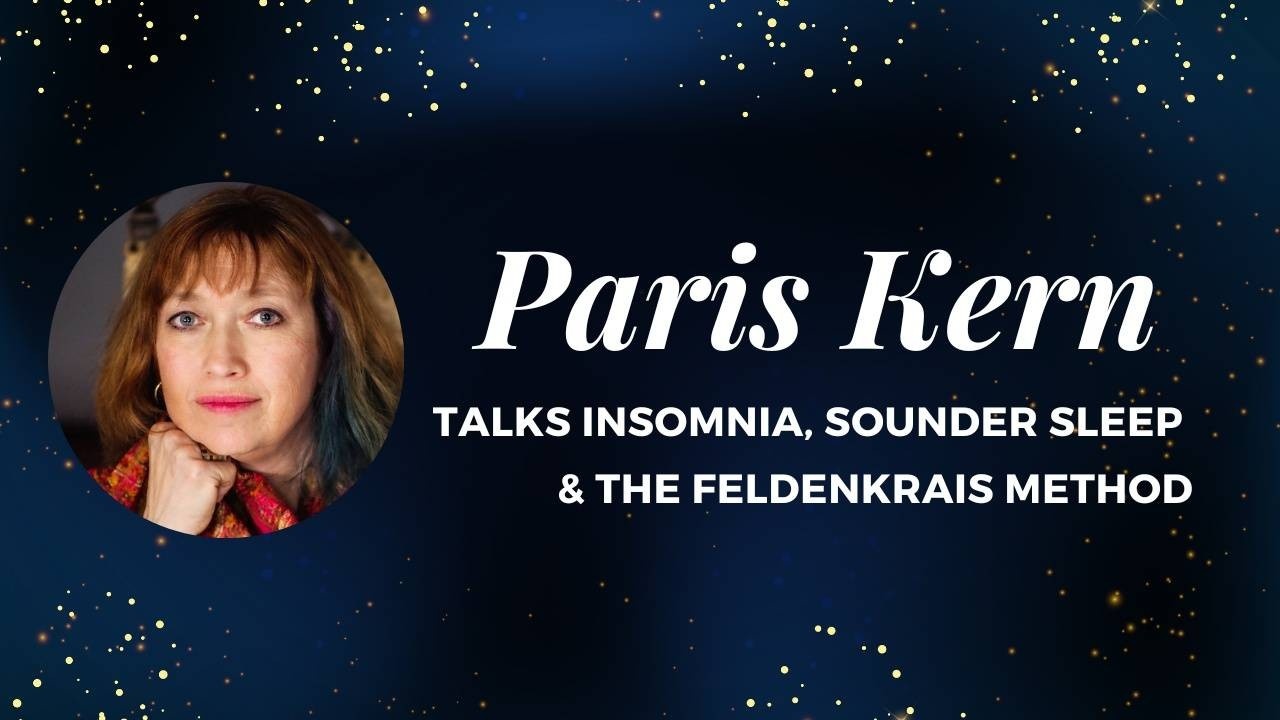
Ira Feinstein: What brought you to the Feldenkrais Method®?
Paris Kern: I'm a singer and a guitar player, and in the late 80s, I was canceling concerts because I was in so much pain. I went down all the typical allopathic channels looking for a solution. After a while, I saw an osteopath, who was the first person who actually listened to what I was telling him about myself. He said, "Why don't you go to this massage therapist? She's really good." I went to the massage therapist. I would feel good for a few days and then return to square one. After a while, she said, "This person is doing a Feldenkrais® workshop. I think you'd probably like it." So, I went.
Ira: What was that first workshop like for you?
Paris: Finding the Feldenkrais Method was coming home for me. I was raised by a father who was a psychiatrist and an environmentalist mother, both of whom thought in systems. My father was instrumental in creating the concept of the Family System Theory along with Virginia Satir ...
Knee Awareness at 44

Ira Feinstein, Managing Director
Lately, it seems as though people with knee problems have surrounded me. Knee bursitis has resulted in my mother-in-law's inability to walk confidently without a cane. A close friend had ACL surgery this summer and told me rehab became her 'full-time job' for the first two months afterward. Another friend is holding off o n getting ACL surgery but is now limited in how far she can walk. Once able to go on a ten-mile hike without thinking twice, she's now lucky if she can walk a quarter of a mile without needing to sit down.
n getting ACL surgery but is now limited in how far she can walk. Once able to go on a ten-mile hike without thinking twice, she's now lucky if she can walk a quarter of a mile without needing to sit down.
At 44, despite over a decade of playing soccer, I've been able to avoid any significant knee problems, but lately, I've noticed that my movements have changed. I can no longer turn on a dime without feeling something in my knee tighten up. Distant memories of relatives hurting themselves by "just moving wrong" have started to replay in my mind. In my twenties and thirties, I didn't know what this meant. Now I do.
Luckily, unlike m...
A Life Enriched: An Interview with Carol Kress

Feldenkrais Trainer Carol Kress shares stories from her first Feldenkrais lesson, her professional training, and more in this interview with Ira Feinstein, FA Managing Director.


